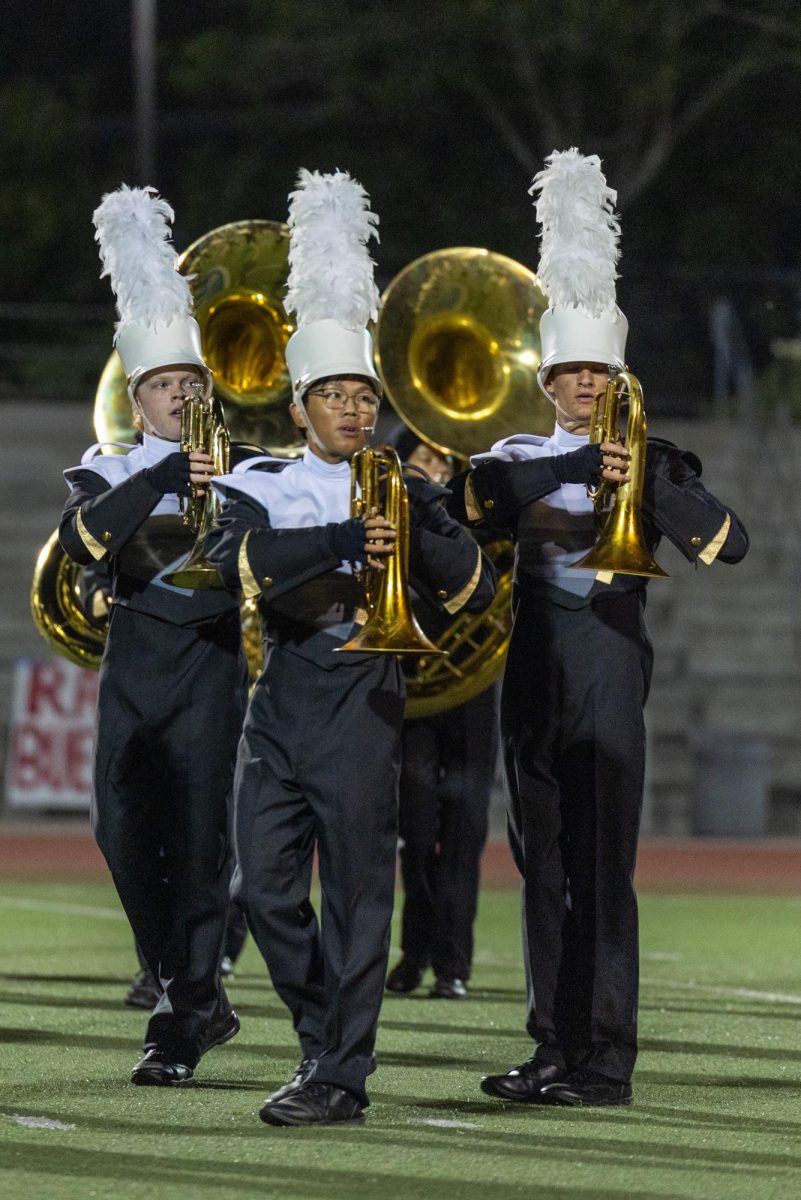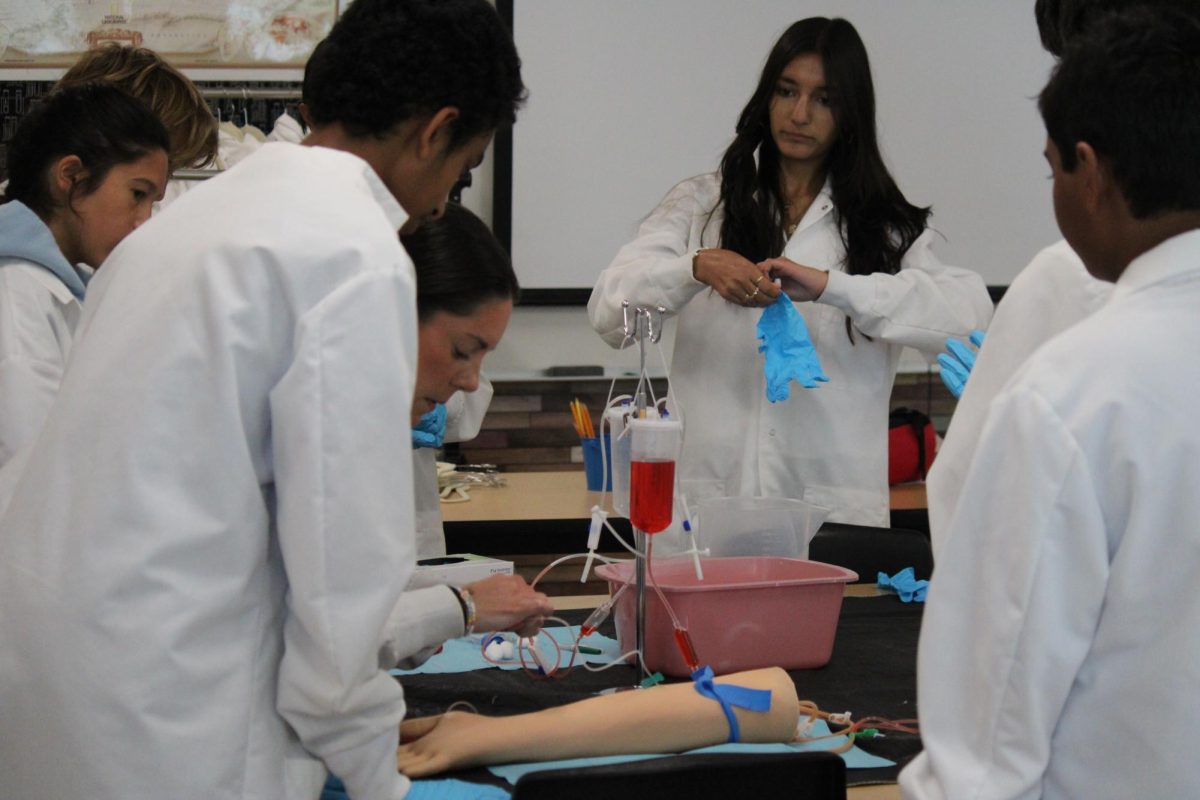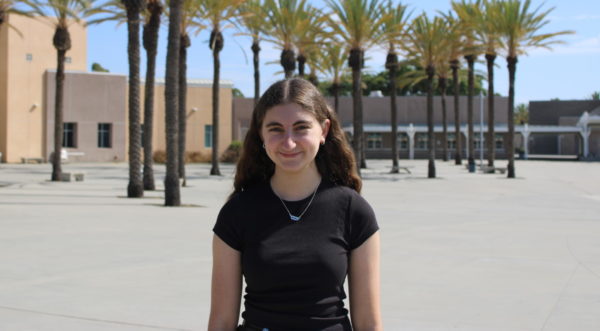According to Westview Program Specialist Michelle Jilly, the law requires that all students with Individual Education Plans (IEPs) have the opportunity to be educated in general education classes. However, this is a change that has been made over many years of adjustment in the education system when it comes to inclusion.
“What we’ve seen over years and years of education is the transitions from students with disabilities being institutionalized, then slowly coming back into school systems but being on separate portions of the campus, to then being in the self-contained classrooms, to now being included more,” Jilly said.
With this intention of expanding inclusion, the state of California has set a goal of ensuring that 58% of students with IEPs are able to spend more than 80% of their day in general education classes. But, with only 34% of students with IEPs participating in this quantity of general education classes last year, Westview did not meet this standard.
This data was presented to Westview staff prior to the start of the school year. Jilly said that the intention behind the presentation was to explain the ‘why’ behind certain inclusion practices in order to create more ongoing dialogues about improvement. Additionally, Jilly said that she is now planning a two-day inclusion summit for administrators, district staff, and outside representatives with the purpose of creating a plan for inclusion going forward.
“That would entail observing classes, interviewing staff, looking at the data, figuring out where we’re at, figuring out where the pitfalls are, and then coming up with what we want to do next,” Jilly said. “Do we need more training? Do we need to add more support? That’s Westview’s next step—having that two-day deep dive and having those conversations. It’s something Westview has never done historically.”
Jilly has been a program specialist for two years at Westview but has been a program specialist in the district for six years. She is in charge of attending meetings for students with IEPs, training new education specialists, and helping teachers with inclusive practices.
“I help with conflict with our students with IEPs [such as] if a family feels like the IEP isn’t being met or they need more services,” Jilly said. “The additional duties within the role are pushing through inclusive practices and moving them forward district-wide.”
One effort being taken to improve Westview’s inclusion of students is bringing in new staff such as Megan Brady, Westview’s inclusion specialist, which is a new position at Westview. She manages full-inclusion students, who are students with cognitive disabilities that are in general education or learning-supported classes. As part of this, Brady also trains support staff and teachers to better integrate all students into their classrooms.
“I’m making sure that [students with disabilities] have every opportunity to participate with their general education peers,” Brady said. “It’s good for everyone to have those different social interactions and get to different experiences.”
Jilly said that the main obstacle for implementing more inclusive practices is the academic rigor and high expectations at Westview. For instance, while she said offering a student the option of listening to an audiobook as opposed to reading a grade-level book can be a quick change to make, it can be difficult for teachers to cater to every student individually in a general education class.
“There are points of access that have been removed for students with a learning disability,” Jilly said. “There are some accommodations that are more difficult to implement in a gen-ed class, especially when you’re talking about 30-plus students.”
Another setback Jilly said she has seen is the lack of resources at Westview, especially when it comes to co-taught classes. Co-taught classes are versions of general education classes that are taught by both a general education teacher and an education specialist or an instructional aid. They typically look similar to a general education class but contain a small group of students with IEPs that receive support from the two teachers. Jilly said she hopes that training teachers to co-teach classes will grow the program further.
“We have limited co-taught classes,” Jilly said. “We have built that part of the continuum for some students but it’s something we need to expand and grow bigger. We need to go into different types of classes as well as increase the number of sections we have. Those classes are getting maxed out.”
Currently at Westview, the co-taught classes encompass most graduation requirements including English at all four grade levels, both physical and life science, all three social studies classes, and Integrated Math I and II. Jilly and Brady are looking to expand to all A-G requirements, such as foreign language and Integrated Math III. Right now, they have been able to accommodate all students who ask to be in co-taught classes, but there are also students whom they believe would benefit from the program who can not be placed into these classes due to limited space.
As for ways students can help out, Brady said that simply being open to interactions with a variety of students within classes.
“For students, when you see someone with different abilities in your class, sit at the table with them, talk to them, and include them because when you get more experiences and interactions with different types of people, you benefit and they benefit,” Brady said. “The point is that everyone’s included, boosting all those inclusive opportunities for different kinds of students.”
While immediate change is being made with the inclusion summit, Jilly said that the next step is for the district to implement a plan to expand IEP learning resources, which typically takes around a year to take effect.
“Usually that following year is when you see the huge growth,” Jilly said. “If we have everything figured out and we have a master schedule that identifies co-teaching classes, next year when I pull the data, you would see the immediate change.”
For Brady, an experience she had as a one-on-one aide for a student with Down syndrome inspired her to continue inclusive practices at Westview, even on the days when it’s challenging.
“I [was an aide for] him from kindergarten all the way through high school,” Brady said. “He walked me down the aisle at my wedding, he got to do band and choir and he was in the school plays and he had a bunch of friends on campus. When he walked across the graduation stage, the cheering was louder than it was for anybody else because he was quite the social butterfly. That just warmed my heart. People knew him. That’s one of the things that keeps me going in this new position. All of our kids can have that kind of experience.”





